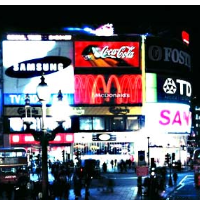Billboard Company Writes the L.A. City Council Proposal on Digital Signs
 (photo: Barco)
(photo: Barco)
When two Los Angeles city council members wanted to write an ordinance to deal with 100 controversial electronic billboards currently the subject of lawsuits, they turned to the experts―lobbyists for Clear Channel, the outdoor advertising company that owned 80% of the signs.
Councilmen Ed Reyes and Paul Krekorian introduced a motion two weeks ago that ostensibly sought to jump start negotiations with sign companies in a public forum—and secure revenues from the lucrative business for the city—before a court ruling slammed the door on any deal. But on Friday, according to the Los Angeles Times, a spokesperson for Reyes admitted that the motion was written by Clear Channel lobbyists.
“It's not uncommon for us to collaborate with other stakeholders on a motion,” Monica Valencia emailed the Times. “We are most concerned with the context of the motion, not the person who wrote it, and its sensitivity to the needs of our constituents.” According to Valencia, only slight changes were made in the lobbyist proposal before being submitted to the council for discussion.
Critics of the billboard proposal said that the motion being considered by the council would involve little public input and mostly be conducted behind closed doors between city officials and sign company representatives.
Clear Channel, along with Vista Media, CBS Outdoor and Regency Outdoor, sued the city of Los Angeles in 2002 over its off-site sign ban and a program to conduct a fee-based inventory and inspection of all existing billboards. The city won in federal court but the companies fought on, taking their battle to state courts where they argued that a $386 fee for the proposed billboard inventory-inspection program was confiscatory and illegal.
The city settled with Clear Channel and CBS Outdoor and in 2006 agreed to allow the conversion of more than 800 conventional billboards to digital, and grandfathered in hundreds of billboards erected or modified illegally. Summit Media, a smaller sign company that felt slighted by the negotiations it wasn’t a party to, immediately sued over a lack of public input in the process and won a Superior Court ruling in 2009 invalidating the agreement.
The city allowed the 100 signs in question to continue operating while the appellate process proceeded, but as a judicial decision on the appeal approached, council members expressed a desire to reach a legislative solution that would make it moot.
The Los Angeles Planning Department proposed creating a sign unit last year to develop policy for dealing with billboards. But the department lacked the funding to staff it and turned to sign companies and developers to pay the bills, according to the Los Angeles Daily News. That reportedly did not set well with government watchdog groups.
A number of cities nationally have banned electronic billboards. Their eye-grabbing displays have been assailed as unsightly, intrusively annoying and a distraction to drivers.
Defenders see them as just another form of free speech, legitimate business activity and reliable revenue streams for government.
–Ken Broder
To Learn More:
Billboard Firm Wrote L.A. Proposal on Signs (by David Zahniser, Los Angeles Times)
Council OKs Digital Billboard Protection (by Dakota Smith, Los Angeles Daily News)
Alternate Reality: City Council Debate on Digital Billboards (Ban Billboard Blight)
- Top Stories
- Controversies
- Where is the Money Going?
- California and the Nation
- Appointments and Resignations
- Unusual News
- Latest News
- California Forbids U.S. Immigration Agents from Pretending to be Police
- California Lawmakers Urged to Strip “Self-Dealing” Tax Board of Its Duties
- Big Oil’s Grip on California
- Santa Cruz Police See Homeland Security Betrayal in Use of Gang Roundup as Cover for Immigration Raid
- Oil Companies Face Deadline to Stop Polluting California Groundwater





